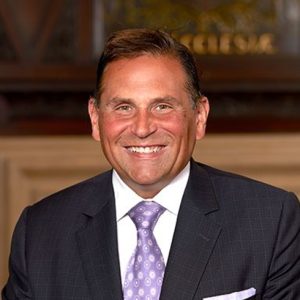Readers, say you have a disease only known by your doctor and the medical staff -a patient John Doe went for treatment for a sexually transmitted disease at the New York Guthrie Corning Hospital- and your girlfriend Jessica’s sister-in-law, a nurse at the clinic, Magan Stalbird, just so happened to tell your girlfriend about your disease.
Could this John Doe sue a clinic, specifically a medical corporation, on the grounds that the clinic failed to maintain the confidentiality of his personal health among other violations, even when this disclosure of medical information came at the hand of a nurse, not a physician? Stalbird, who sent Doe’s information on the STD and medical condition within 6 text messages to Jessica, had attracted the attention of not only the state (New York Court of Appeals) and federal courts (U.S. Second Circuit), but possibly also celebrities and the well known for the safety of their own personal and medical information.
Robyn Hagan Cain’s report featured on a blog reveals that “Doe is suing for common law breach of fiduciary duty to maintain the confidentiality of personal health information, breach of contract, negligent hiring, negligent infliction of emotional distress, intentional infliction of emotional distress, and breach of duty to maintain the confidentiality of personal health information under three New York laws: Civil Practice Law § 4504, Public Health Law § 4410, and Public Health Law § 2803-c.” So much for having a big mouth!
Because the U.S. Second Circuit (Federal) is wary of being too presumptuous on its decision based on NY state law precedent, the New York Court of Appeals (State) has been asked to review a critical question: Under current NY law, could this John Doe, sue a medical corporation for breaching the fiduciary duty of failing to keep medical information confident, through its disclosure, even though this was not caused by a physician who, the nurse, “acted outside the scope of her employment?”
If you ask me, both sides could present very strong cases- unfortunately for the patient John Doe, the law is the law. Think about it, the patient John Doe, did nothing wrong and may succeed in presenting to be a victim who innocently sought medical help and discovered that his clinic revealed personal information without his permission. The clinic on the other hand, under NY law, can contend that they should not be held responsible for the actions of an employee who is not a doctor and who committed acts that had personal intentions outside of an employer’s jurisdiction over its employees.
New York City houses some of the world’s most famous people and the following decisions can change the legality of disclosing, even prying, into certain types of medical information. If you are reading this and can relate to it or are in a similar position as John Doe, our firm strongly advises you to seek counsel.

Edward A. Ruffo, Partner
Mr. Ruffo currently litigates cases at the state and federal levels in New York and New Jersey and has obtained numerous multi-million dollar medical damage awards for his clients. He has been annually ranked as a Top 10 and Top 100 Trial Lawyer by numerous professional societies including The National Trial Lawyers Association.

